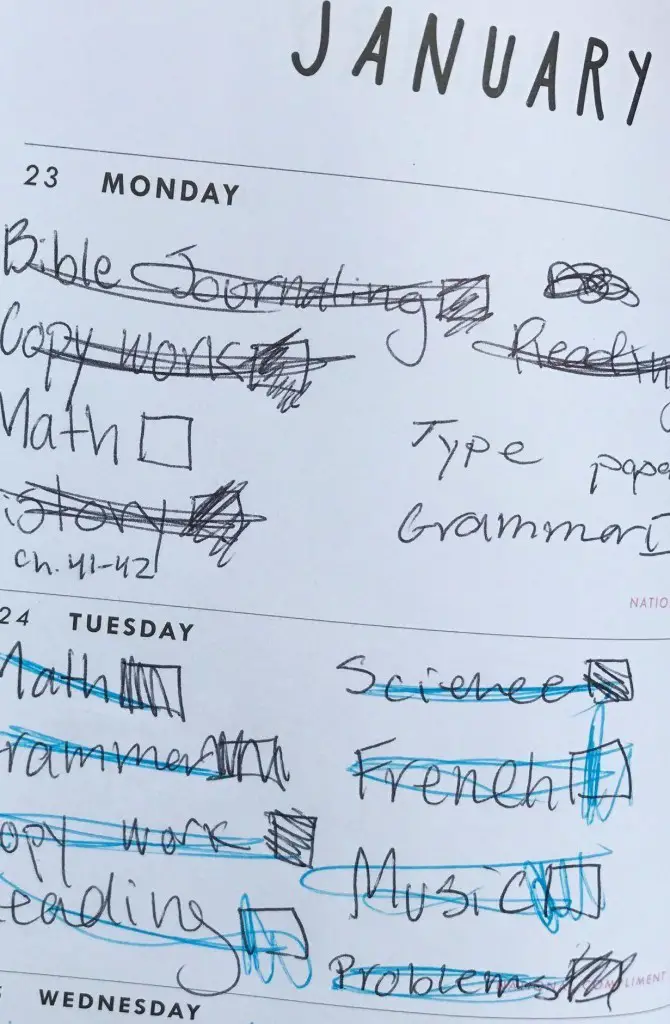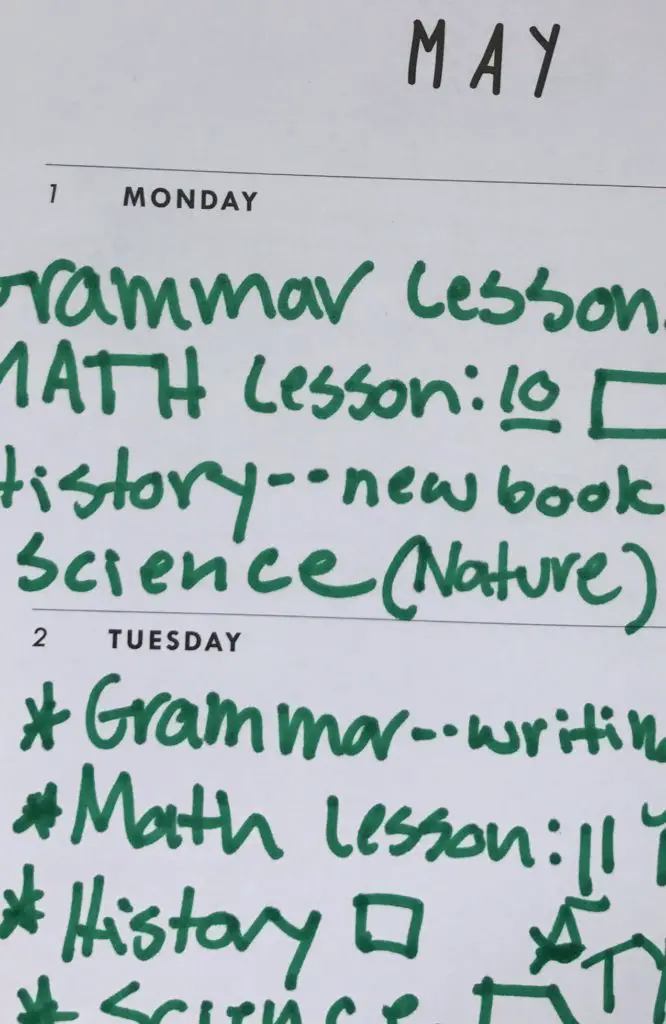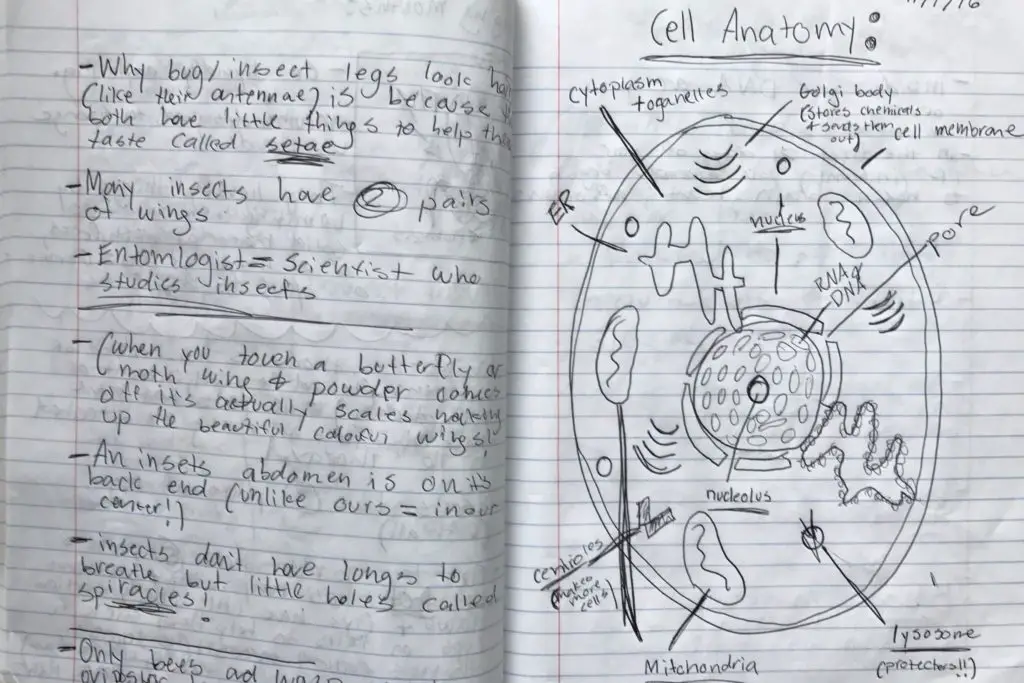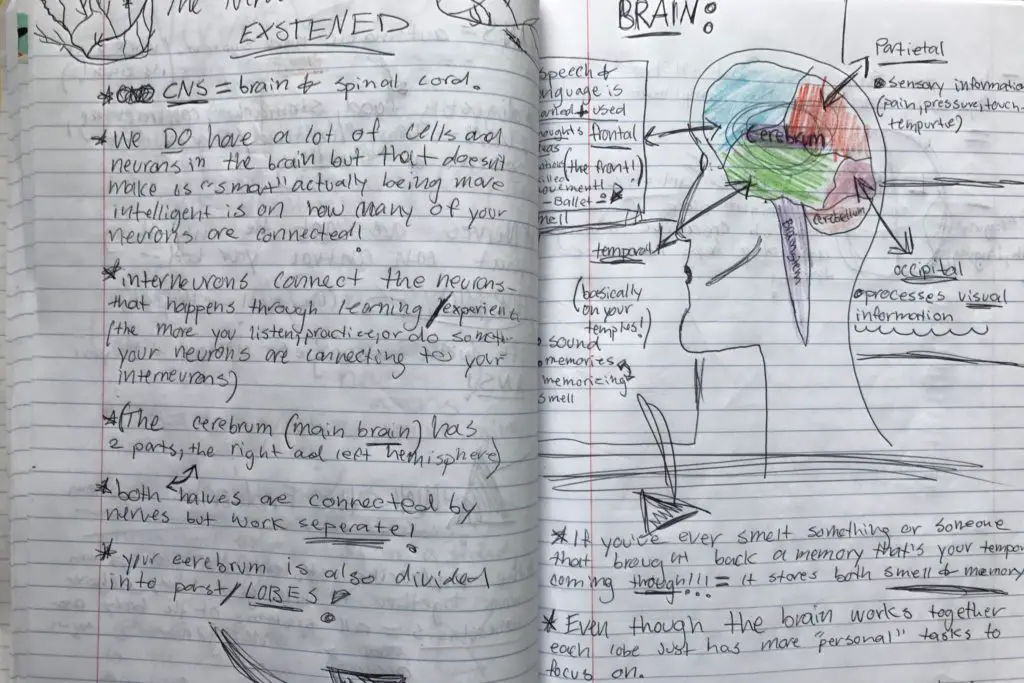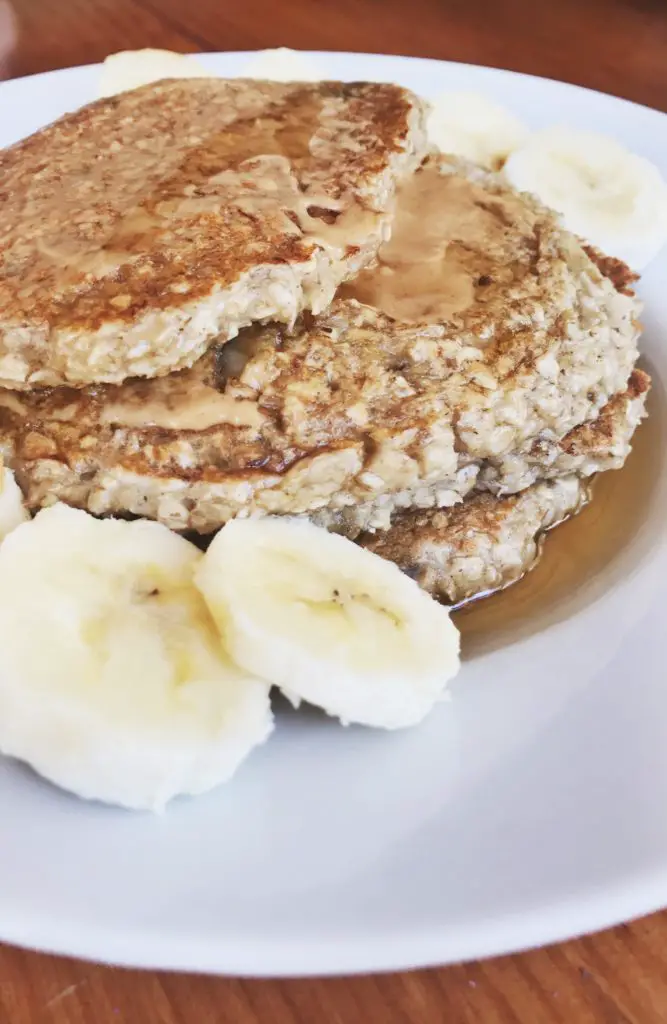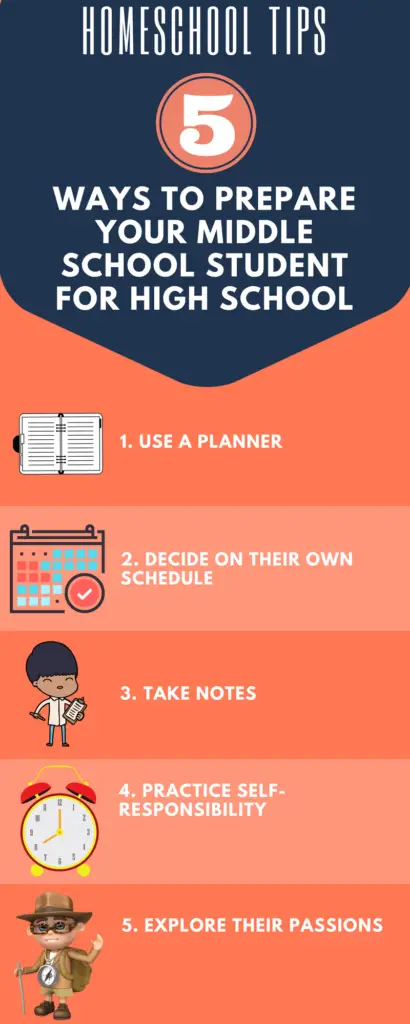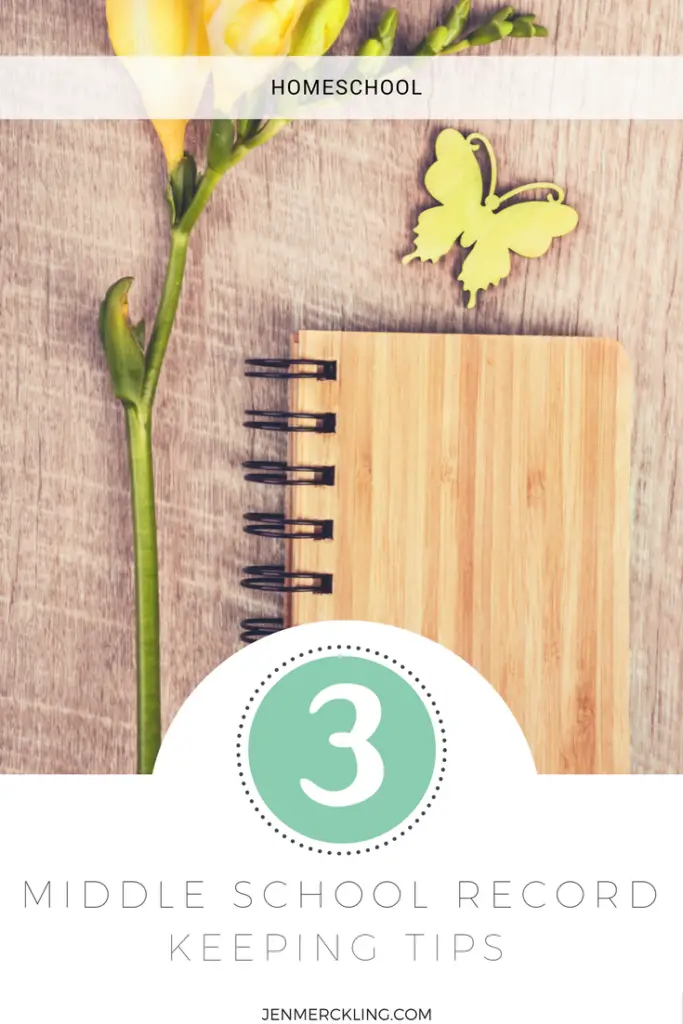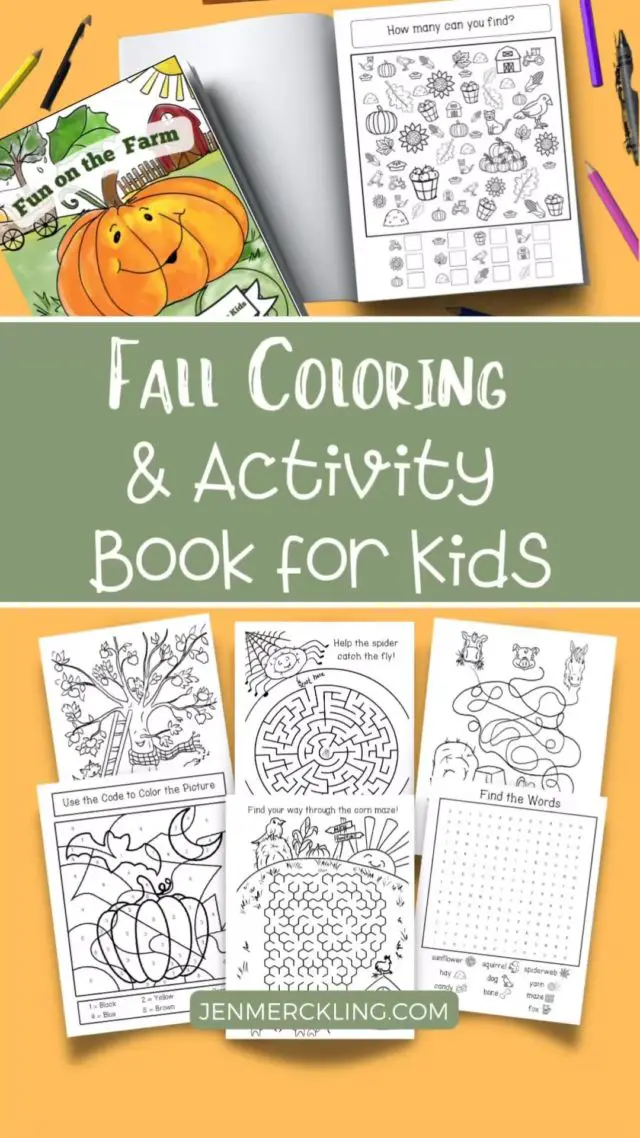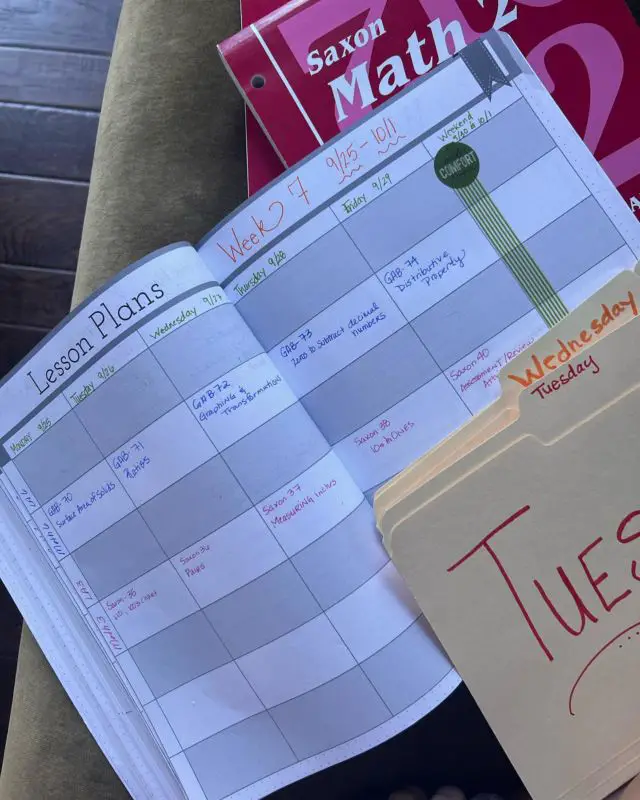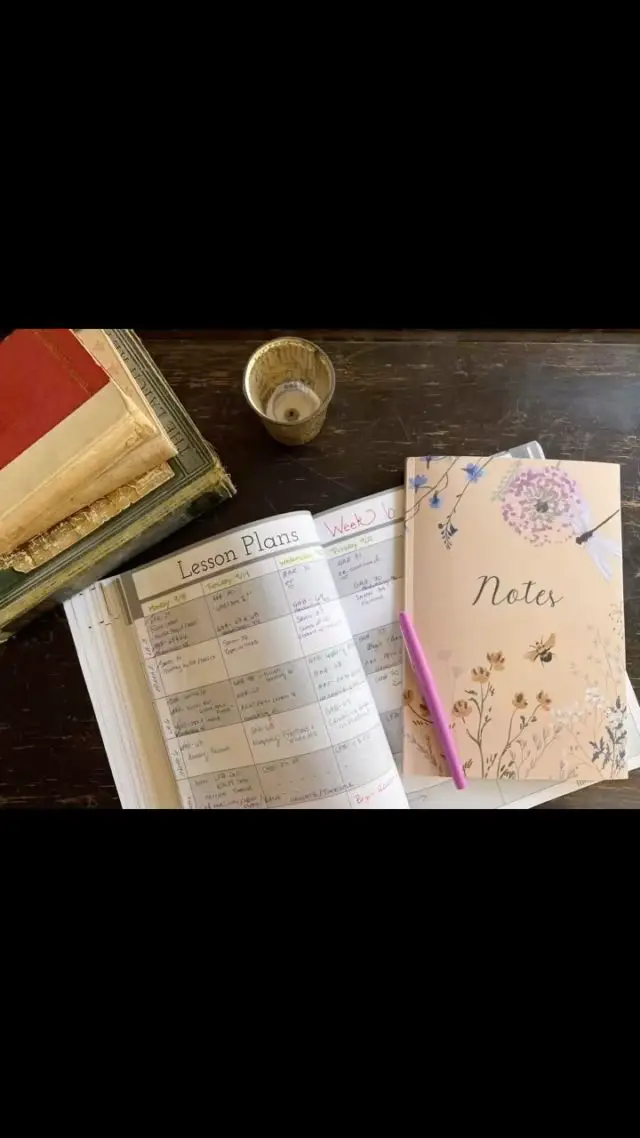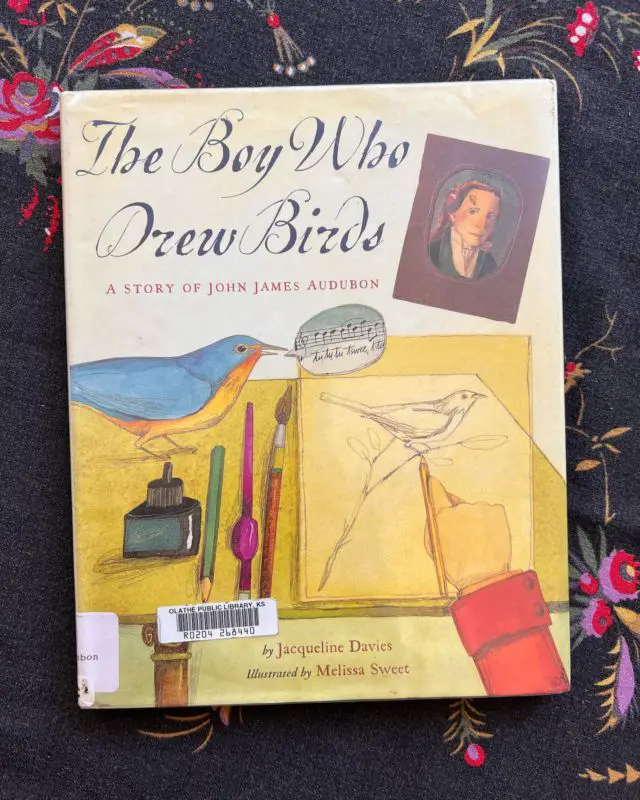Round Three! I am in the thick of homeschooling middle school…Specifically, this will be my third go at homeschooling eighth grade—it is actually one of my favorite years. Thirteen and fourteen year olds are independent learners, capable writers, and problem solvers—translation: mama’s life is easier! Middle school course work (don’t miss my 8th grade curriculum post) is exciting and challenging but without all the pressure that comes with high school. Everything learned this year will be revisited and solidified in the coming four years. So the great news is—you can’t mess this up! Your middle schooler isn’t missing anything or behind—this is your year to “practice,” high school.
“Practice High School”
And what I mean by that is—your kiddo can practice being more independent and more accountable for their own learning, and you can practice keeping a more formal record of their work. What exactly does that look like?
5 Things Your Middle School Child can do to Prepare for High School:
Here are 5 things your 8th grader (or middle school child) can do to demonstrate more ownership of his or her education:
1. Use a planner. My child is obsessed with her planner—this may be more of a girl thing than a boy thing because both of my teenage girls live by their planners (my son, not so much). I give her time to shop for a planner and really pick one that suits her. Throughout the year we splurge on seasonal stickers, washi tape, and colored pens. My eighth grader puts all her ballet classes and practices in the planner—and just about any other social event. I give her a weekly assignment sheet, and then she writes down her assignments daily and marks them off as she completes them in her planner. We encourage our son (the non-planner) to use the Calendar and Notes on his phone. Back in eighth grade, I had him write his assignments on a weekly chart and mark them as they were completed. He is in public high school now, and has never had trouble getting his work completed and staying on top of assignments—I definitely think the practice in eighth grade was an important step for him in learning to be organized.
Here is a peak at my eighth grade daughter’s planner:
2. Decide on their own schedule. I do not schedule my eighth grade daughter’s day. I haven’t for at least 2 years. She takes her assignment sheet and decides when and how she wants to tackle the work. Some days she starts with French, other days she wants to knock math out first. Last year I would get all my little people settled—diapers, dressed, breakfast (I had 2 year old twins and a five year old while teaching my 13 year old). When they were all engaged in play or watching a show, I would have a break to work with my middle schooler. I’d typically suggest we work on Math or English—her choice. We’d usually get about 30 minutes of uninterrupted time together before the littles needed me to refocus my attention back to them. This would give Audrey (my middle schooler) time to work independently on the subjects we’d just discussed together, i.e….math problems or writing assignment. The next time my small children were occupied, I’d reconnect with Audrey—we would finish up any work she needed assistance in completing, or I’d finish any teaching/explaining that needed to done. Normally, my middle schooler would be done done by lunch time. There were days she would choose to do large amounts of her weekly history reading and no science (and vise versa). The decision of when to do her independent work was hers—and she thrived. Is there anything more rewarding than getting your work done early on a Friday?!
3. Take Notes. We really worked on this skill last year, and I plan to continue focusing on note taking again in eighth grade. Initially, I was giving my daughter questions to work through that went along with her history and science reading. But something just didn’t feel like it was connecting…she was forgetting a lot of what she read, and I didn’t feel like her answers were very well developed. So we changed course and threw out the questions. Instead, I had her focus on writing notes as she read through her history and science. In science, note taking was especially easy because the reading included sections with headings and bold words, which lent nicely to learning how to take notes and outline. History was more challenging. I had her write main points from each page—things she thought were important. She ended up taking beautiful notes and was able to tell me so much more about her reading. We are going to stick with this general plan for history this year and only slightly modify it for science (the book she will be using already has a procedure for studying worked into the curriculum). My goal is for her to create outlines with the history notes and begin taking notes from an oral lecture.
4. Practice Self-Responsibility. This will look different for each child—but here are some things Audrey does…sets her own alarm (she has ballet early on Saturday mornings) and makes her own meals—breakfast, lunch, even dinners (she is at ballet until late in the evening some nights). She is vegan and has become an amazing, healthy cook! In fact, I feel like the sous chef in my own kitchen these days! Thankfully, Audrey also keeps track of all her dance rehearsals and anything that needs to be packed in her dance bag.
5. Explore their Passions. Kids really start to feel the pressure…”What are you planning on doing after high school? What do you want to be? What do you want to do?” Homeschooling middle school provides the time and space for kids to work out some of these big ideas. Audrey is easily able to get her work done in the mornings—leaving her free to explore topics she loves in the afternoon. Ballet dancing takes up a large chunk of her time (about 20 hours a week)—and maybe this will be a path she takes professionally…But she has also become passionate about beauty, make-up, and health. Audrey started a YouTube channel about a year ago, and she has learned so much about technology, business, marketing, and design! I have helped zero amount, and we are amazed at the initiative and motivation she has shown! Her channel AudreyAnn is adorable—if you have a teen or tween daughter (especially one who loves dance, fashion, or beauty), have them check it out! In addition, when your child develops a passion, it is easy to give them “credit,” for the work they’ve done. Audrey easily has earned a technology credit/elective!


Practice Keeping Records for High School
High school requirements and records are topics for another blog post—but, middle school (especially eighth grade) is an important practice time for parents! I am personally a huge fan of the Home Scholar, Lee Binz. She has such great insights on creating transcripts and comprehensive records—I bought and used her program to help me develop transcripts for both of my older teens. I initially intended to homeschool them through high school—but they had other ideas (another topic for another post!). However, I was thankful I had purchased the resources because I was able to create records their high school used for class placement. Additionally, during his sophomore year, my son needed to come home part-time. We partnered with the school and homeschooled half time. The records I created for those classes helped ensure the credits he completed at home transferred to his official public high school transcript. It sounds a bit overwhelming—but Lee is very encouraging and offers lots of practical advice. Check out her free webinars and very affordable e-books (many kindle versions are free on Amazon)! If you are looking ahead to high school, I highly recommend starting with her resources!
Three Steps for Middle School Records — Your Practice Before High School
Here are 3 steps for keeping middle school records that will help you transition into high school record keeping:
1. Keep a list of all books read—both formally assigned and read for pleasure.
2. Write the formal name of all curriculum used and the overarching summary for objectives covered. I used the table of contents to create the following example:
Pre-Algebra Teaching Textbook 2.0
Student will practice arithmetic skills with high proficiency, reviewing rational numbers, decimals, percents, and measurement (including area and volume). In addition, student will solve simple algebraic equations which include integers, fractions, like terms, exponents, the distributive property, and the distance formula. She will identify and solve for line and angle measurements and will use geometric formulas, including the pythagorean theorem. Geometic figures are explored, including solving for area, volume, and surface area. Student will use functions and graph lines and will also use data to calculate statistics and probability.
3. Record grades…gulp. I know this can be really daunting. I homeschool with a mastery approach—meaning, we keep working at a skill until we get it (and truly up to this point—formal grading seemed a bit pointless). So recording grades is not part of our natural flow. But my goal in middle school is to give a grade. The grades may just be based on participation and assignment/ project completion (which truly is how many classes in public high school operate). For a subject that can easily be assessed (like math), I give tests and use them as a percentage of the total grade. You decide how this will look. I give Audrey 60% of her grade based on homework completion and then 40% of her grade is based on math tests (below is a screen shot of her math grade book). For a subject like history, grades might be awarded like this: 25% completed notes, 25% timeline completion, 25% projects, 25% tests.
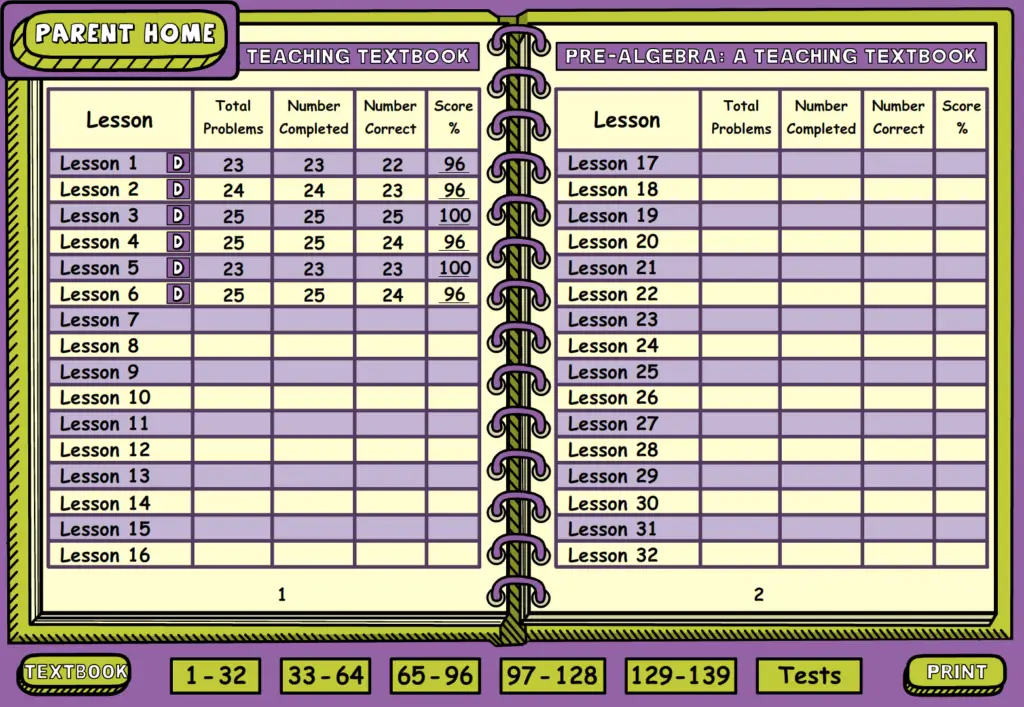
Enjoy the Freedom and Flexibility
Ultimately—enjoy these years. As I said earlier—you can’t mess this up! In public middle school, kids are just trying to survive their hormones—no one is paying attention to anything but their make-up, hair, and the boy across the room. World War 2 will be visited again… Compound sentences—these never go away…. The scientific method—not going anywhere. High School will solidify all these concepts. You are helping your child grow in confidence and flourish as an independent learner. Focus on pushing them to be stronger readers, hammer down foundational math skills, and encourage lots of writing. Love them through this messy life season—it is more messy for some than others. God is working in you and through you!
I’d love to hear about how you are homeschooling middle school! If you have any questions about homeschooling–please don’t be shy! Comment below or email me jen@jenmerckling.com.
Blessings on this journey, Sweet Friends!
With Love,
Jen xo


